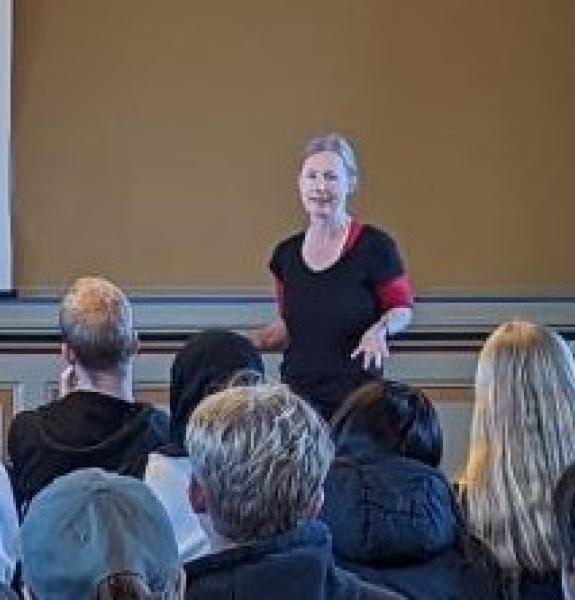Mikkeline is from Copenhagen, Denmark, and wrote this at the end of her first year studying Education here at Christ's College, Cambridge. Before starting here, she studied for the Danish studentereksamen.
Before starting your course, what were you excited for an what were you nervous about?
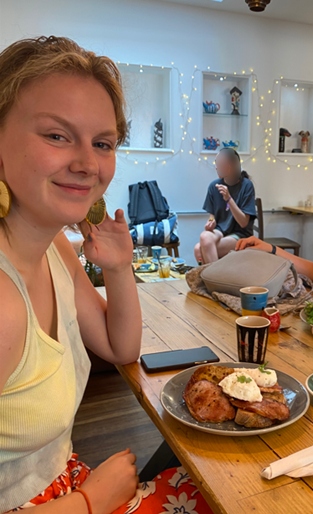
Even though my focus is mainly on psychology, Education also contains traces of linguistics, philosophy, sociology and anthropology, making discussions more interesting and multidisciplinary.
I currently have no teaching aspirations and I was therefore a little nervous about whether the Education tripos would be focused on educating future teachers. However, Education has all the perks of being a broad degree as it is multidisciplinary and versatile without seeming unfocused. It allows me to approach topics from various disciplines in acknowledging that multiple angles can give a more nuanced perspective.
Why did you apply to Christ's?
I had never considered Education before I spoke to the Director of Admissions at Christ’s, Dr Emily Tomlinson. I attended a conference with the Nordic Study Abroad Community and spoke with Dr Tomlinson about my interest. She suggested I looked into the Education and gave me her email if I had any questions. Therefore, when deciding on College I was already partial to Christ’s.
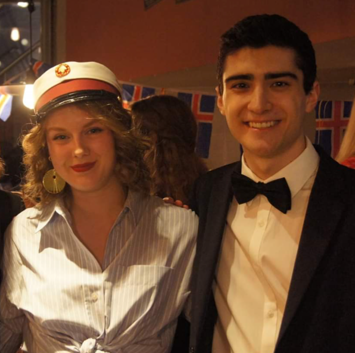
I wanted the Cambridge atmosphere in a College that was not too big or too small but as I applied during COVID lockdown I could not travel to visit any Colleges. Ultimately, I ended up applying to Christ’s with very little information about the actual feel of the place. However, every time I had a question either before, during or after the application process I would always rely on a reply from the Admissions Team with guidance and reassurance. I found that Christ’s seemed very attentive to its students even before they matriculate, making me feel comfortable with the prospect of studying in another country.
What is your favourite place in College?
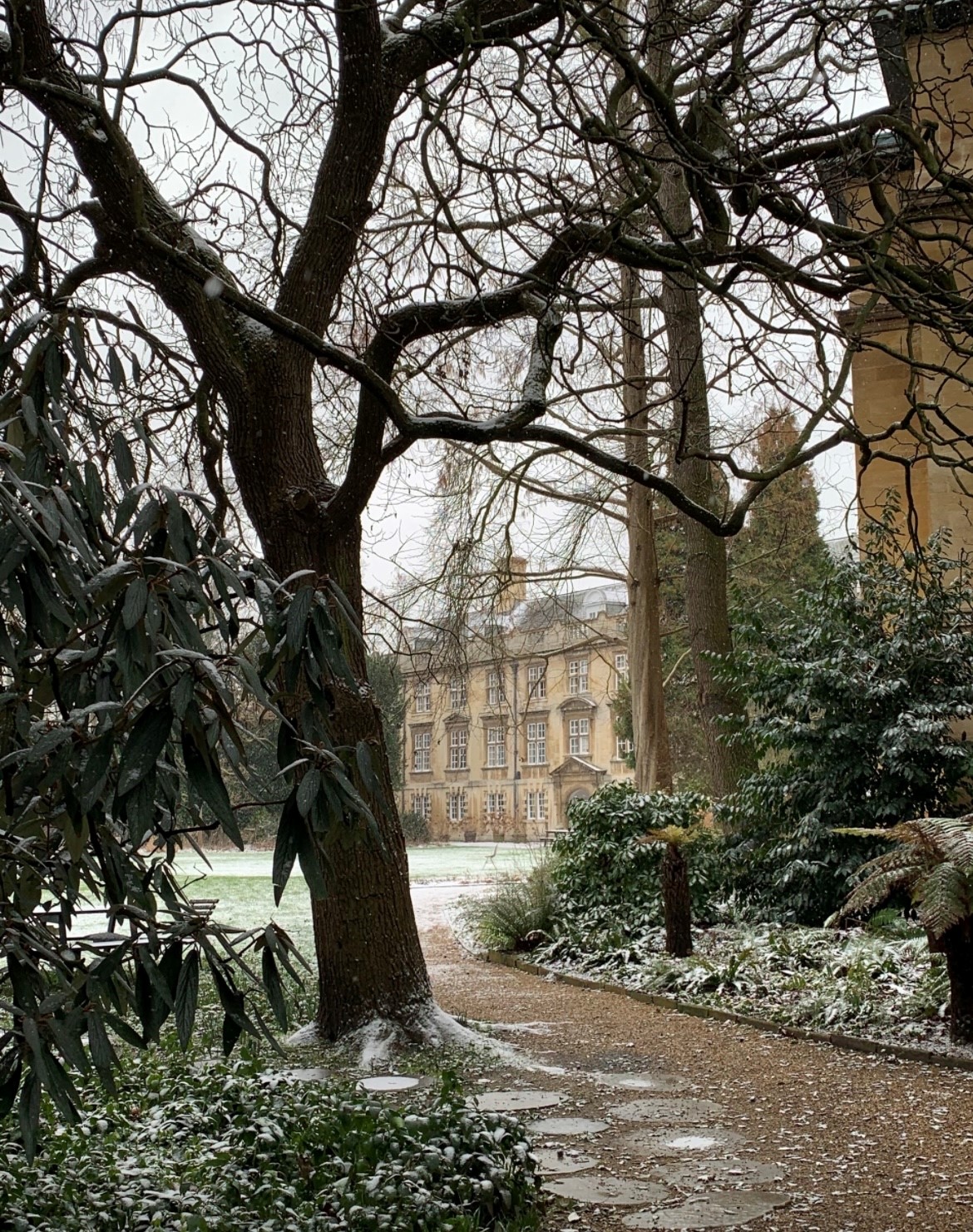
The Fellows’ Garden is an amazing place to unwind and take a breath. Cambridge can at times be an overwhelming experience and I have therefore loved to have a place within College to go for a small walk before going back to studying. It is also a good place to meet with friends to relax. When I have taken friends from other Colleges to the Fellows’ Garden they are always surprised by its size and beauty as Christ’s seems very small from the outside.
Was the interview what you expected it to be?
I (of course!) was very nervous before the interviews and had prepared for weeks in advance. I expected it to be like a strict oral exam. I was therefore surprised when I experienced two interviews in a comfortable setting and relaxed atmosphere. I was interviewed during COVID and therefore attended the interview online. Copenhagen is one hour ahead of UK and I was worried about being too late or too early. However, my interviews were simply a conversation about a topic I love to discuss.
I talked about my own educational experiences as well as theories I found interesting. I analysed a graph that they had made up for the occasion and what it said about education in the UK. I even made the odd feminist joke here and there! I wish that someone had told me beforehand that the interviews were an opportunity for me to discuss my favourite subject uninterupted for half an hour, it would have made it a lot less daunting!
How did Cambridge compare to your expectations?
Before I arrived at Cambridge, the prospect of attending the University seemed both scary and intriguing. While I was worried about whether I was up to the challenge of achieving such high academic standards I was also looking forward to being challenged academically. I believe that the majority of students attending Cambridge expect a lot of themselves – a pressure which I am still learning how to manage – but the excitement of attending an institution where you have guidance and knowledge at your fingertips is a privilege.
Did you find it easy to settle in?
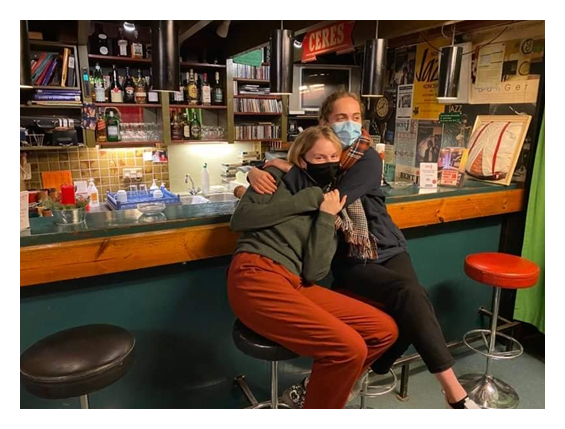 I experienced a massive culture shock during my first month in Cambridge. I had not expected the difference between Denmark and England to feel so visible and it took me a while to get acquainted with a new routine in another country. However, I quickly realised that a lot of international students have that initial feeling and talking to other people who had had a similar experience was extremely helpful. Then I found Scandinavian Society which has turned out to be a home away from home. While I enjoy getting to know students of all nationalities, the comfort of getting a beer with a fellow Scandi can sometimes save a day of homesickness.
I experienced a massive culture shock during my first month in Cambridge. I had not expected the difference between Denmark and England to feel so visible and it took me a while to get acquainted with a new routine in another country. However, I quickly realised that a lot of international students have that initial feeling and talking to other people who had had a similar experience was extremely helpful. Then I found Scandinavian Society which has turned out to be a home away from home. While I enjoy getting to know students of all nationalities, the comfort of getting a beer with a fellow Scandi can sometimes save a day of homesickness.

I don’t remember a lot from Fresher’s week because I was too worried about everything to really enjoy it. I had heard that you were supposed to find your lifelong friends that first week and was therefore very busy trying to get an impression of everyone and make a good first impression myself while experiencing homesickness and culture shock. I didn’t click with anyone that first week… however, it turned out not to matter because the following weeks people were just as open as they were in the first week. I only regret putting so much pressure on myself in the beginning, wanting to make friends with everyone before even settling in.
What is the hardest thing about your course?
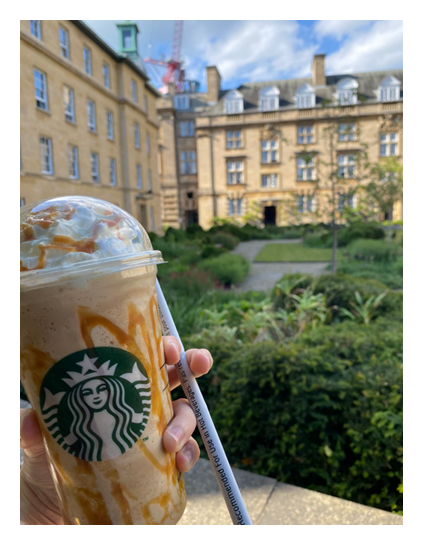 Cambridge is known for its high academic standards and it does not disappoint. Sometimes the workload can get very overwhelming, making it difficult to find times for relaxation. However, as opposed to school I have chosen my area of study which means that even when it is overwhelming it is always interesting. Additionally, the Faculty of Education does specialise in learning, meaning that they listen to the needs of the students about how they learn. For example, there is usually more time for each essay during the exam than in other faculties and the papers emphasise the importance of discussion and questions during the lectures.
Cambridge is known for its high academic standards and it does not disappoint. Sometimes the workload can get very overwhelming, making it difficult to find times for relaxation. However, as opposed to school I have chosen my area of study which means that even when it is overwhelming it is always interesting. Additionally, the Faculty of Education does specialise in learning, meaning that they listen to the needs of the students about how they learn. For example, there is usually more time for each essay during the exam than in other faculties and the papers emphasise the importance of discussion and questions during the lectures.
Nevertheless, at times you just want to put the work away for a bit and do something else. During the Easter term I came up with a reward system when I had a very rough day: after achieving my goal I would go for a walk in the Fellows’ Garden and finish with a Starbucks Frappuccino (which can be found just around the corner from College!).
Is the course what you expected it to be when you applied?

I initially applied for Education because I wanted to know more about how learning can take place in a classroom and the different mechanisms of ‘good’ education. However, the last year has made me reconsider my basic assumptions about Education and psychology. I have not focused as much on the mechanisms of learning in the classroom as I have on the purpose of a classroom, what it means to learn and cross-cultural differences in the meaning of education. I have had room to explore these new interests through my lectures and discuss them with the lecturers and in supervisions, which is the very-small-group teaching offered at Cambridge.
What has been your favourite topic this year and why?
I did not expect to enjoy studying philosophy in Education as much as I did. I the beginning of the year I thought the purpose of my track was to expose the best ways of learning new material and discuss surprising situations in which learning can take place. I did not expect to have my basic beliefs about the education system challenged.

The paper Critical Debates in Education opened up a discussion about the meaning of learning, what is worth learning and the basic purpose of education. These debates turned out to be necessary and important and sent me down an entirely different academic path from what I expected. I am currently interested in how cultural differences and variations manifests themselves in education, a topic of which I am certain would never have crossed my mind otherwise. Last year I had a lot of opportunities to explore this further, for example by focusing on remaining imperialist tendencies in Greenland.
How many teaching hours do you have?
I have about one supervision per week on average and I attend around one lecture a day. However, the small size of the Education Faculty results in our lectures being of closer resemblance to discussion groups rather than actual lectures.
What do you do when you're not working?

At the beginning of the academic year I took up knitting, and I have become a bit obsessed with it. I love taking a half-done sweater with me to cafés and movie nights with friends but also just while taking a break from studying during the day. I would always recommend finding a similar thing to relax with, because I find it forces me to concentrate on something else for a while. Of course it does not have to be an obsession – I have currently finished 12 sweaters and counting – but I love to have something else to do outside of academic work. I also play piano, guitar and have just bought a banjo, so I am a part of the Folk Music group at Christ’s as well. We perform everything ranging from Ceilidh songs, modern Danish folk and drinking songs.
How do you spend your holidays?
I have spent the majority of my holidays at home in Copenhagen. Even though I have had to do some additional reading and preparation during the holiday, the Faculty of Education generally prioritises the workload to be within term to give the students a break.
Back to Student profiles page / Education at Christ's / Prospective students from Denmark / Next: Mira's profile

